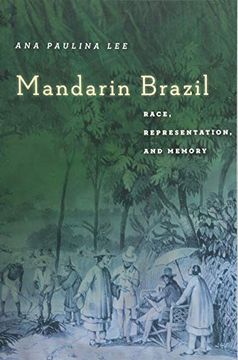Share
Mandarin Brazil: Race, Representation, and Memory (Asian America) (in English)
Ana Paulina Lee (Author)
·
Stanford University Press
· Paperback
Mandarin Brazil: Race, Representation, and Memory (Asian America) (in English) - Ana Paulina Lee
$ 30.40
$ 38.00
You save: $ 7.60
Choose the list to add your product or create one New List
✓ Product added successfully to the Wishlist.
Go to My WishlistsIt will be shipped from our warehouse between
Monday, June 24 and
Tuesday, June 25.
You will receive it anywhere in United States between 1 and 3 business days after shipment.
Synopsis "Mandarin Brazil: Race, Representation, and Memory (Asian America) (in English)"
In Mandarin Brazil, Ana Paulina Lee explores the centrality of Chinese exclusion to the Brazilian nation-building project, tracing the role of cultural representation in producing racialized national categories. Lee considers depictions of Chineseness in Brazilian popular music, literature, and visual culture, as well as archival documents and Brazilian and Qing dynasty diplomatic correspondence about opening trade and immigration routes between Brazil and China. In so doing, she reveals how Asian racialization helped to shape Brazil's image as a racial democracy. Mandarin Brazil begins during the second half of the nineteenth century, during the transitional period when enslaved labor became unfree labor―an era when black slavery shifted to "yellow labor" and racial anxieties surged. Lee asks how colonial paradigms of racial labor became a part of Brazil's nation-building project, which prioritized "whitening," a fundamentally white supremacist ideology that intertwined the colonial racial caste system with new immigration labor schemes. By considering why Chinese laborers were excluded from Brazilian nation-building efforts while Japanese migrants were welcomed, Lee interrogates how Chinese and Japanese imperial ambitions and Asian ethnic supremacy reinforced Brazil's whitening project. Mandarin Brazil contributes to a new conversation in Latin American and Asian American cultural studies, one that considers Asian diasporic histories and racial formation across the Americas.
- 0% (0)
- 0% (0)
- 0% (0)
- 0% (0)
- 0% (0)
All books in our catalog are Original.
The book is written in English.
The binding of this edition is Paperback.
✓ Producto agregado correctamente al carro, Ir a Pagar.

